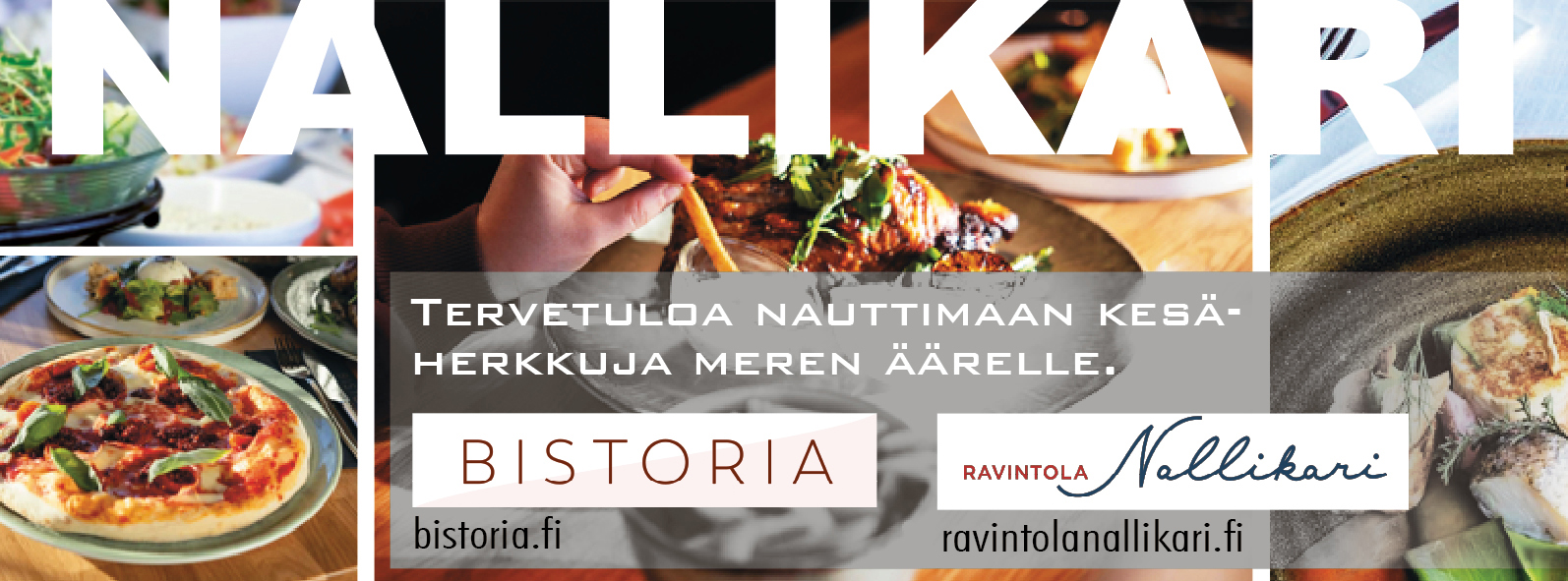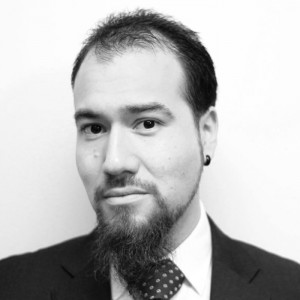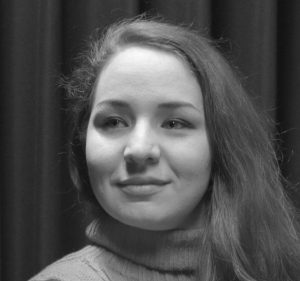
Meet Pablo Santur who moved to Finland from Peru 14 months ago and is currently following master’s studies in Learning, Education and Technology at the Faculty of Education.
Besides studies, he took part in different courses and projects, like Demola Project or EduHack. He did an internship at the Oulu Mining School and has been a facilitator in Self-Hack, the life-designing event organized for the University’s freshmen this year. Moreover, he is now coaching two TEDxOulu speakers for January.
In his spare time, Pablo enjoys watching movies and TV series, scrolling Facebook and Instagram, reading and playing mobile games occasionally. However, nowadays he doesn’t have that much time for these hobbies since he is on thesis-writing mode.

Our second senior is Irisa Keahey. She moved to Finland about eight years ago from California. Her hobbies are couchsurfing, international pen-palling and different types of art, like sculpting and painting. Irisa’s major is Intercultural Teacher Education, but she is studying Special Needs Education and World View Education, also known as Ethics, as her minor studies.
In her spare time she really likes getting involved with the communities, for example youth centers, and working with families from immigrant backgrounds. She enjoys helping and being useful, particularly for people moving to Finland, guiding them in finding services and integrating, so they won’t be overwhelmed by the difficulties they might face while adjusting.
She also founded the International Family Group of Lahti as part of these community services together with her friends about 8 year ago. It has since become a wider community group which organizes cultural events and a great opportunity for immigrants to create social networks.
1. How did you end up studying at the University of Oulu?
Pablo Santur: “Since I have a bachelor’s degree in Audiovisual Communication, I worked as a TV script writer and producer in different projects. After working in Buenos Aires for a while, I returned to Peru and my professional path changed from multimedia to university teaching. So one thing leads to another and, well, here I am.”
Irisa Keahey: “I originally came to Finland because I was couchsurfing and I met with some of my pen pals. When I arrived, I found the place really exotic and different from California. On top of that, I also heard many good things about the education in Finland and being previously a teacher myself, I decided that it is a good place to live.
I came to study education at the University of Oulu because I have been a teacher before in the United States and I had difficulties with my previous qualifications being recognized here in Finland. They have not been accepted as I understood they are going to be accepted prior to my moving. Eventually, the principal of the school where I was substituting in Lahti suggested me the Intercultural Teacher Education (ITE) program in Oulu because it was the only one in Finland conducted in English and it will offer me full qualification. “
2. Talking about your past, what were you dreaming of becoming when you grow up?
Pablo: “When I was 15, I wanted to become a software developer. Around 17, an entrepreneur. In fact, I enrolled in the Business Management program at first. Two years later, I changed to Advertisement and finally to Audiovisual Communication.
Irisa: “When I was young, I actually never wanted to be a teacher. My mother used to be a teacher and I considered that it cannot be an interesting or rewarding job at all. I was dreaming of becoming a professional artist and even attended an arts school in L.A.
At some point I realized it was not for me. During my arts studies, I took a side job which consisted of teaching ceramics to children. I found that I enjoy working with the kids more than with the art. “
3. Did your dreams change?
Pablo: “As I explained previously, they did. A lot. I believe we are always changing, so I had to adapt. However, I was always revolving around creativity and human relationships.”
Irisa: “For many years I worked as a ceramics teacher and art teacher with children in need, children from community centers, with families in poverty, with migrant background, or involved in criminal activities. I found that working with those kids has been one of the most important experiences of my life and I am still extremely close to many of them and we keep in touch even if they grew up.”
4. What would be the ideal professional path for you after graduation?
Pablo: “There are many possibilities, aren’t there? At the end, the best one, I think, would be one that integrates creativity and human relationships. In that sense, considering my background, education became an interesting field, since you usually have an audience and the need to engage them to foster their learning. Even though pure engagement doesn’t insure learning as an outcome, no learning can happen without engagement. Actually, my master’s thesis is about engagement, so these days it is quite often in my mind.
Coming back to what we were talking about, I think that in the future I want to explore the links between education, technology, and media. This could happen either in the business or the academic world.”
Irisa: “I would like to do an internship after graduation that would lead to a full time job. I hope it won’t take long until I find a school with friendly staff and that has a welcoming environment and encourages collaboration.”
5. If you would graduate tomorrow, what would be the first thing you would do?
Pablo: “Visit my girlfriend, watch videos, and sleep… In that order (laughs).
Talking seriously, in one of the lectures I attend they recommend us to start planning our next step way before it occurs. So, I am already planning what I am going to do next. Looking for companies, developing relationships, etc.”
Irisa: “If I would graduate tomorrow, or if I won the lottery, I still wanted to work with children. This is what I want to do. I enjoy it so much when I can see how I can guide them in identifying their strengths and finding their path. They have so much joy doing that!”
6. Can you see any obstacles in your path?
Pablo: “At this point of my journey, I would say that the main obstacle is to figure out the best plan that suits me. To start a Phd or not? In Finland or abroad? Finding companies that are attractive for me.“
Irisa: “The only difficulty that I find is that I am very limited in my choices, since there are only a handful of schools where I am employable due to language issues. As a result, I really need to improve my Finnish language skills so I can obtain Level 6 in the National Language Test (YKI) and work on my Swedish studies. After that I will be qualified to teach also in other schools besides the international schools. “
7. How are you planning to overcome the obstacles or failures?
Pablo: “In order to find answers to my questions I am planning on asking people around, experts in the field, research for information and so on.”
Irisa: “I feel that the University of Oulu has lately tried much harder to fulfill the language needs of international students. They are now offering a program specifically for teacher students which offers high level language training and I think that it is really helpful, in spite of the fact that I can’t take part in it, since I am living outside of Oulu and cannot constantly commute at the moment. I hope I will find something similar closer to where I live. Meanwhile, I will study independently as well.
I received good advice from teachers in the language courses and from other foreigners who are teaching. I think a supporting community of professionals is very helpful.”
8. Any final thoughts or suggestions for other students?
Pablo: “Think, enjoy, and embrace every moment. Either brightness or darkness, all energies are part of us.”
Irisa: “My advice to other students is to listen to what people have to say, especially if they study in the same field and plan to follow a similar career. Creating a network is very important, including people who are much older and who can offer wise advice. For international students, learning the language will help you enjoy more independence and integrate better in the community, which in return will make you happier.”
For our printed issue (4/2019), I interviewed two more students about their studies and plans for the future, so grab your issue and check out their stories! You’ll find our newest issue at our magazine stands at Linnanmaa and Kontinkangas campuses, or you can read it online at issuu.com.
Photo design: Irene Dinh.













